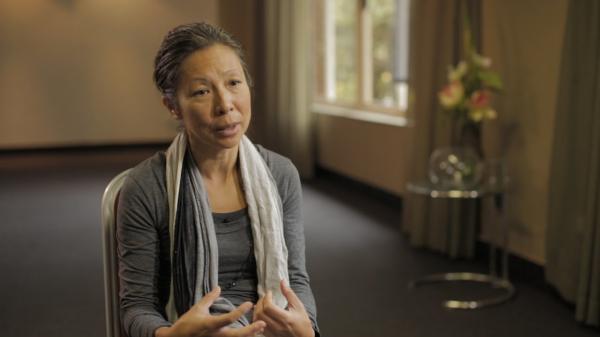Referral to a rheumatologist
View transcript
Referral to Rheumatologist
Linda Bradbury
Nurse Practitioner, Rheumatology, University of Queensland
President, Rheumatology Health Professionals Australia
The GP is exactly that, is a general practitioner, so it’s really very common that he’ll refer you to a specialist. So the GP knows a lot about a lot of things but it’s vital that he then refers you to a specialist so you get specialist care that you need.
Dr. Marina Kang
General Practitioner
They’ve had time between the first and the second consultation to investigate for themselves usually on Google and asking other people who have similar conditions so they’ve got a whole lot of information that may or may not be useful to them so it’s really good that patients discuss that with the general practitioner to allow them to have an open forum as to what is on their mind. So they do have some fears about they often see the worst case scenario when they go on Google so it’s difficult to bring them back to their own individual case. So it’s good to be able to talk to them about how the arthritis affects them individually because arthritis, rheumatoid arthritis, ankylosing spondylitis and psoriatic arthritis affects patients differently in a very unique way. So to have them open up and tell us what their fears are, what their concerns are, what their thoughts are; especially with work, relationships, travel, pregnancy, perhaps even parenting. All those things might be on their minds. For completeness I like to refer them to a rheumatologist to get a final either diagnostic assessment or for the rheumatologist to talk with them about options open to them for treatment. So the second consultation is really platforming them to be able to go and see a rheumatologist for further assessment.
Dr. Irwin Lim
Rheumatologist
If your GP suspects rheumatoid arthritis, they’re very likely to refer you to a rheumatologist for treatment as soon as possible. Because there are clear advantages of treating this disease early to prevent the long term effects of this disease.
Dr. Mona Marabani
Rheumatologist
President, Australian Rheumatology Association
I would urge people if they feel they’re not getting any way to really press the point and really make sure that your GP understands the extent of your symptoms and the duration of your symptoms and anything else you can do to help to make that consultation effective because if you’re not getting better very quickly then it’s really urgent that the GP takes the next step.
Dr. Marina Kang
General Practitioner
The reason why I as a general practitioner refer to rheumatologists with rheumatoid arthritis is that although we have a fairly high suspicion that it is rheumatoid arthritis with the information we have gathered, it is a fundamental thing that the arthritis gets treated specifically. And so the rheumatologist has the best avenue of giving the patients the medications that perhaps I have not the key to be able to give them. There are specialised effective medications now for rheumatoid arthritis that will really reduce the symptoms and prevent the damage of the joints so that’s why I refer to a rheumatologist for treatment.














